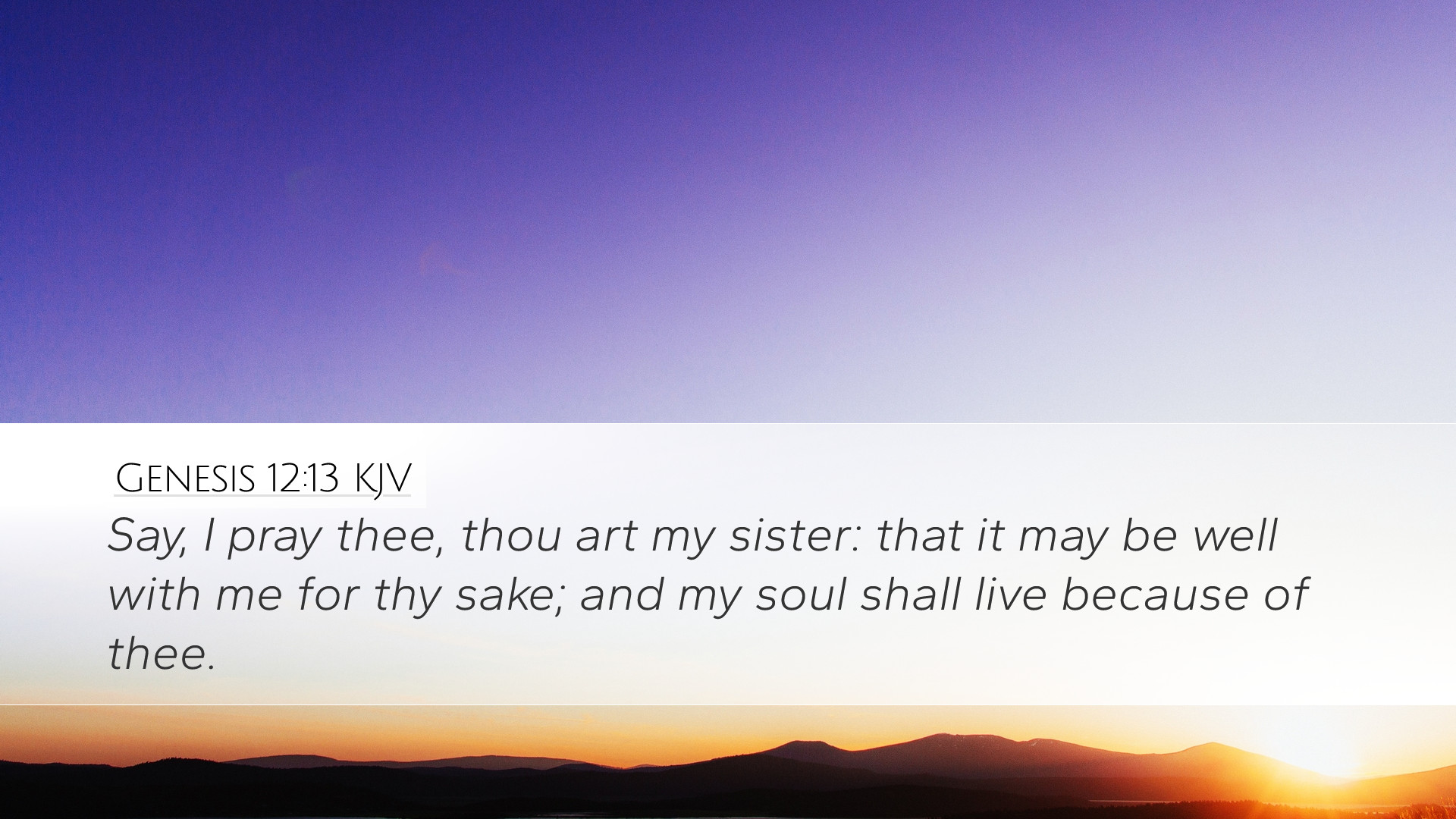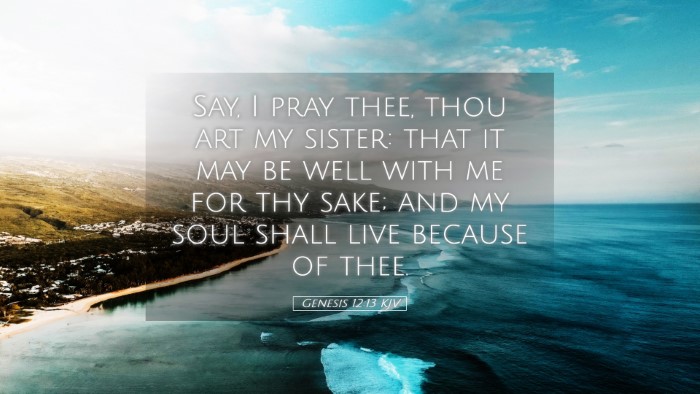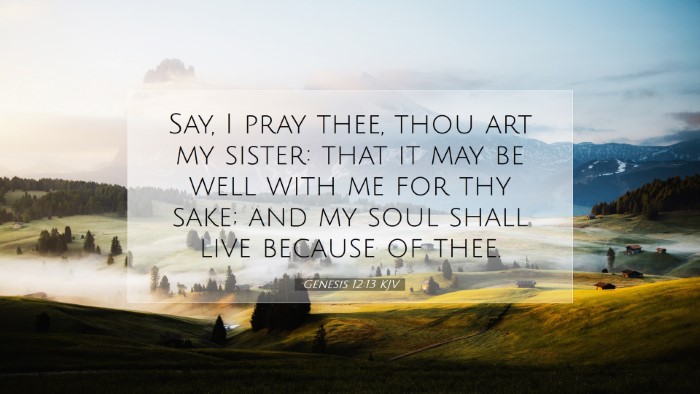Commentary on Genesis 12:13
Verse: "Say, I pray thee, thou art my sister: that it may be well with me for thy sake; and my soul shall live because of thee."
Contextual Overview
Genesis 12:13 occurs within the narrative of Abram's journey to Egypt during a time of famine in Canaan. This period marks a critical juncture in Abram’s life, where his faith is tested amid fear for his own safety. The verse reflects Abram's deception regarding Sarai, presenting her as his sister, which carries significant implications for understanding the nature of faith and human frailty.
Thematic Insights
-
The Nature of Fear:
Abram's fear of the Egyptians highlights a common human response to situations of peril. Matthew Henry points out that Abram's lack of faith leads him to devise a plan to protect himself rather than trusting in God’s promises.
-
The Complexity of Relationships:
In claiming Sarai as his sister, Abram employs a partial truth which complicates his relationship with God and others. Albert Barnes discusses the ethical implications of this deception and its effects on Abram’s integrity.
-
Women’s Role in Biblical Narratives:
This verse brings to light the challenges faced by women in Biblical accounts. Adam Clarke emphasizes Sarai's vulnerability in this situation and how her strength is often overshadowed by the actions of her husband.
Exegetical Insights
Examining the terms used in the verse, “sister” denotes familial closeness, which was a strategic choice by Abram to alleviate the threat to his life. The deception, however, places Sarai in potential danger and shows Abram’s moment of weakness in faith.
Insights from Matthew Henry
Henry comments on Abram's reliance on deception as a means of protection instead of seeking divine guidance. He suggests that this reliance on human wisdom rather than divine assurance led to further complications in Egypt.
Insights from Albert Barnes
Barnes elaborates on the significance of the phrase “that it may be well with me for thy sake,” illustrating how Abram’s fear of death led to self-preservation that endangered Sarai and highlighted the tensions within Abrahamic faith.
Insights from Adam Clarke
Clarke offers a theological perspective by linking this incident to Abram's lack of complete trust in God’s protective power. He suggests that Abram’s actions encouraged a pattern of deception that echoed throughout his life, affecting his legacy.
Applications for Theology and Ministry
This passage serves as a rich source for pastoral teaching. It encourages reflection on the following themes:
-
The Struggle with Faith:
Pastors might explore the tension between faith and fear in their congregations, emphasizing reliance on God amidst adversity.
-
Integrity in Relationships:
Encouraging honesty and integrity, especially in marital relationships, can be derived from examining Abram's choices and their consequences.
-
Empowerment of Women:
Lessons about empowerment, dignity, and the significant roles women play in God’s plan can arise from analyzing Sarai’s situation in this narrative.
Conclusion
Genesis 12:13 serves as a profound reminder of the often complex interplay between faith and human action. The commentary from Matthew Henry, Albert Barnes, and Adam Clarke reveals the multi-layered implications of Abram's decision, encouraging deeper investigation into both the historical context and present-day applications of these themes for scholars and church leaders alike.


